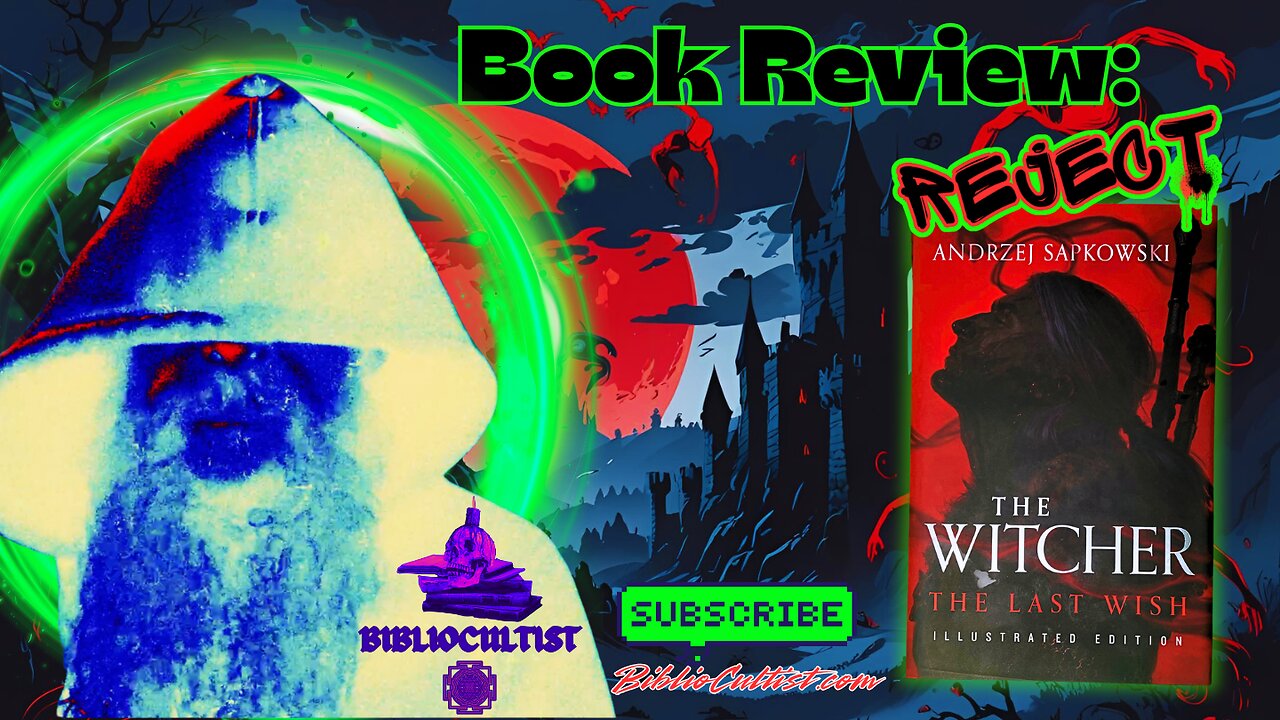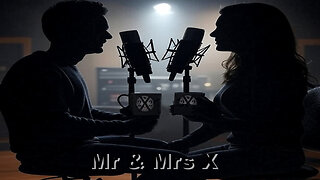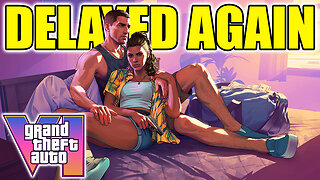Premium Only Content

The Witcher: Last Wish FLOP DISSECTED
*CHECK OUT MY MERCH: https://bibliocultist.printful.me/*
In this #reject #bookreview, I delve into Andrzej Sapkowski's 'The Witcher: The Last Wish', expressing disappointment with the book's overuse of tropes, lack of depth in characters and philosophical insights, and poor dialogue. Initially, I thought it was a satirical take on fairy tales, but realized it was meant to be taken at face value. The main characters, Geralt and Yennefer, come across as unlikable and superficial. While the book may appeal to a younger audience, I feel it lacks substance for adult readers, falling short in terms of character development, intellectual exploration, and originality.
*all music and content copyright BiblioCultist.com*
#TheWitcher #AndrzejSapkowski #fantasy #occultism #fairytales #trope #trash #booktube #books #biblio #cultist
**SHOW NOTES**
1. Andrzej Sapkowski (b. June 21, 1948, Łódź, Poland) is a Polish fantasy writer and former economist, best known as the creator of The Witcher (Wiedźmin) series. His iconic protagonist, Geralt of Rivia—a monster-hunting mutant with a moral code—debuted in short stories in the 1980s before expanding into novels that blend Slavic folklore, dark humor, and supposed philosophical depth. Though initially popular in Eastern Europe, The Witcher gained global fame through CD Projekt Red’s video games (2007–present) and Netflix’s adaptation (2019–present). A vocal critic of genre snobbery, Sapkowski has won numerous awards (including the World Fantasy Lifetime Achievement Award, 2016) and remains a towering figure in fantasy literature.
2. The bounty hunter/mercenary archetype (Han Solo, Geralt of Rivia) is a pragmatic outsider who sells violence but clings to a frayed moral code—often in defiance of the systems that employ them. Where Solo plays the charming rogue (selfishness masking loyalty), Geralt is his grimmer, Slavic cousin: a mutant "anti-knight" whose cynicism barely hides his weariness with human hypocrisy. Both are cheap philosophers—uttering quotable nihilism while repeatedly dragged into heroism—but Geralt’s world punishes idealism harder, reducing his pragmatism to survival. The archetype’s appeal lies in this tension: they’re antiheroes who still choose sides, proving even the jaded can’t escape ethics.
3. Even terrible art and media serve as cultural X-rays—revealing the anxieties, obsessions, and delusions of their era. A schlocky '50s B-movie exposes Cold War paranoia; a cringe-worthy '80s corporate thriller glorifies Wall Street greed; a vapid 2000s YA dystopia mirrors post-9/11 surveillance fears. Bad novels, films, or TV shows are often more telling than "great" works because they uncritically regurgitate the zeitgeist: their clichés are the culture’s subconscious, their lazy plots its unexamined myths. From Twilight’s abstinence porn to Transformers’ militarized toys, trash art is the fossil record of mass desire—proof that aesthetics and insight need not overlap.
-
 LIVE
LIVE
X22 Report
1 hour agoMr & Mrs X - Women Are Fighting Back Against Men In Women's Spaces, It Has Begun - EP 15
448 watching -
 20:46
20:46
Jasmin Laine
1 day agoJoe Rogan Drops NUKE—Carney’s Secret Deal + 100,000 Kamloops Homes at Risk
1.93K15 -
 4:00
4:00
Mrgunsngear
1 day ago $13.87 earnedFirst They Came For Glock, Now They're Coming For The Ruger RXM
7.37K15 -
 1:42:46
1:42:46
Lara Logan
1 day agoINJECTING TRUTH INTO THE VACCINE DEBATE with Del Bigtree | Ep 43 | Going Rogue with Lara Logan
6.56K28 -
 12:55
12:55
Cash Jordan
18 hours agoNYC Busses 'MOBBED' by Millionaires... as "Communist" Mayor VOWS to END AMERICA
38210 -
 LIVE
LIVE
Major League Fishing
1 day agoLIVE! MLF Toyota Series Championship!
768 watching -
 18:54
18:54
Bearing
1 day agoNew York COMMUNIST TAKEOVER 🚨 Zoran Mamdani’s Revolution 💥
3.12K65 -
 1:05:26
1:05:26
Man in America
1 day ago“Poseidon” Doomsday Sub, Microplastics & The War on Testosterone w/ Kim Bright
40.2K55 -
 12:15
12:15
Degenerate Jay
20 hours agoIs GTA 6 In Trouble?
226 -
 LIVE
LIVE
FyrBorne
13 hours ago🔴Battlefield 6 Live M&K Gameplay: Who's Hunting Who?
897 watching